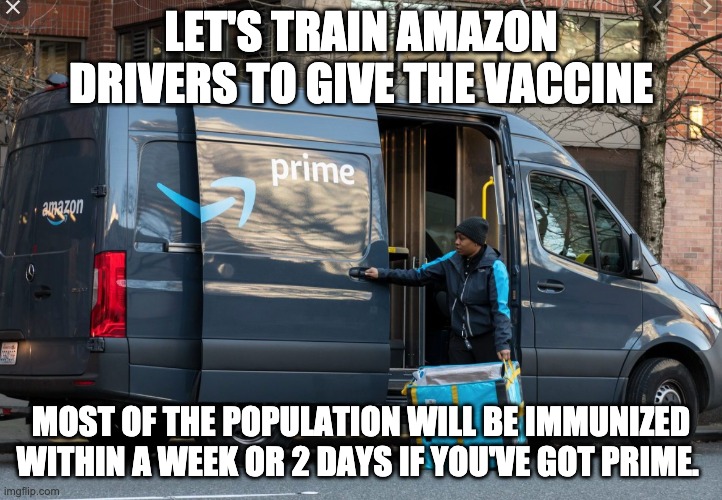 1. Good Monday Morning
1. Good Monday Morning
It’s January 25th. We are back after observing Martin Luther King, Jr. Day last week and will be on our regular schedule until Presidents Day.
Microsoft reports earnings after tomorrow’s bell. Apple and Facebook do the same Wednesday.
Today’s Spotlight is 1,027 words — about a 4 minute read.
2. News To Know Now
a. TikTok is averaging more user time than Facebook for the first time ever. TikTok is also projected to reach one billion monthly active users during 2021. (Search Engine Journal)
b. Alphabet is closing Project Loon, a seven year old project that created internet access points from a balloon piloted in the stratosphere. The service proved useful during natural disasters, but project leader Alastair Westgarth said that the company had not found a way to get costs low enough to build a sustainable long-time business. (Company announcement)
c. Facebook has referred its indefinite suspension of former president Donald Trump to its independent Oversight Board that includes the former prime minister of Denmark, a Nobel Peace Prize laureate, and many academics, attorneys, and advocates. (Company announcement)
3. COVID-19 Tech News
Great Trackers
Overview – Johns Hopkins
Community Mobility – Google
Vaccine Distribution – Washington Post
Risk Calculator – Brown
Coronavirus & Tech News
Apple Watch Can Detect Early COVID-19 – 9 to 5 Mac
Facebook, NYU Partner on Algorithm for X-rays – Facebook
Google Funding Effort to Stop Vaccine Misinfo – Forbes
Hackers Steal & Alter Vaccine Data – Ars Technica
UK Hospitals Using Blockchain to Track Vaccine – CNBC
4. Search Engine News
Privacy-focused search engine Duck Duck Go continues to see volume increases as people look for Google alternatives. Statcounter reports that DDG is now the second most popular search engine for US mobile users, edging out Yahoo and nearly doubling Microsoft Bing’s market share. DDG reached 100 million daily searches for the first time this month according to analysis from Search Engine Journal
Google likely isn’t worried since its market share in most countries is ninety percent or better. That still includes Australia although the company has said it will remove its search engine from Australia if it is forced to agree to pay media outlets for news content. French regulators ruled last year that the company must pay news agencies in that country. Google announced last Thursday that it would begin negotiating individual agreements with French publishers.
What’s the difference? The Australian law is proposed. The French law was on the books, and regulators there said Google’s operations violated it.
5. In The Spotlight — 5 Things I Learned From Parler
The period following Princess Diana’s death in an auto accident twenty-three years ago became a case study in communications. People sought to feel connected to the event and overwhelmed the British government’s digital resources.
Conservative social media network Parler is overwhelmed in a similar way for very different reasons. We told you back in November that two-year old Parler was funded by one-time Breitbart investors David Mercer and his daughter Rebekah. While Breitbart is a discredited, deceptive website, it is a business success thanks to tapping the same emotions as the grief over the British royal.
Today, Parler is hosted on Russian servers due to a judge’s decision to not order Amazon Web Services to reinstate Parler. The site’s poor coding and lack of security allowed a researcher to download 80 terabytes of public Parler posts and videos legally. Even the mobile application remains down as of this writing, yet the company remains defiant.
The data scraped from the site allowed Gizmodo to track user locations of Parler posts. The work they did during the investigation showed that terrorists advanced farther into the Capitol than had been previously known. In addition, they identified individuals who posted to the site while in police stations or from U.S. military bases.ProPublica went a step further and posted a stunning series of minute-by-minute videos from in and outside the Capitol during the attack. Mediaite created what may be the best headline of Parler’s role in the event: “Selfie-Happy insurrectionists have created over 140,000 pieces of evidence for FBI — and counting.”
What I Learned From Parler
1. Prepare for your best case scenario to work out.
2. Don’t allow criminals or legally dubious customers in your business.
3. Security and privacy are the table stakes in the online world.
4. Closing is sometimes the best option. Don’t fall prey to sunk costs.
5. Don’t believe your own press clippings.
6. Debunked — National Guard in D.C.
At the inauguration of President Joe Biden, conspiracy theories spread when some National Guard members were viewed on video facing away from the road.
According to Snopes, some service members were ordered to observe from that direction.
7. Following Up — Facebook Payouts
We mentioned Dr. Anthony Fauci’s appearance two weeks ago on The Try Guys YouTube channel and mistakenly replaced YouTube channel subscribers with video views Old friend Bob Kovacs reached out and reminded me of the difference. Bob has more than a dozen videos with at least 100,000 views each, but plenty of others with much smaller numbers despite his 13,000 subscribers. Here’s the link to Bob and his creative wife Mary Ellen’s 2020 Christmas tree video card on YouTube.
We reported last July that Facebook was planning to pay Illinois users for violating their facial recognition laws. This week, we found out that each Illinois user will receive a $338 check — less than a third of the state’s recommended payment, but $550 million in actual payout. Ars Technica has details.
8. Protip – Zoom’s Hidden Watermarks
You may not be surprised to learn that people can figure out who has leaked a videoconference recording. Lifehacker describes some of the watermarking tools at your organization’s disposal.
9. Screening Room – Draw Ketchup
10. Coffee Break
Jimmy Buffet fans are known as Parrotheads, but real parrots apparently sing along when their human plays Led Zeppelin. Man, we’ve all had a lot of extra time at home. Rock out on Twitter.
11. Sign of the Times



